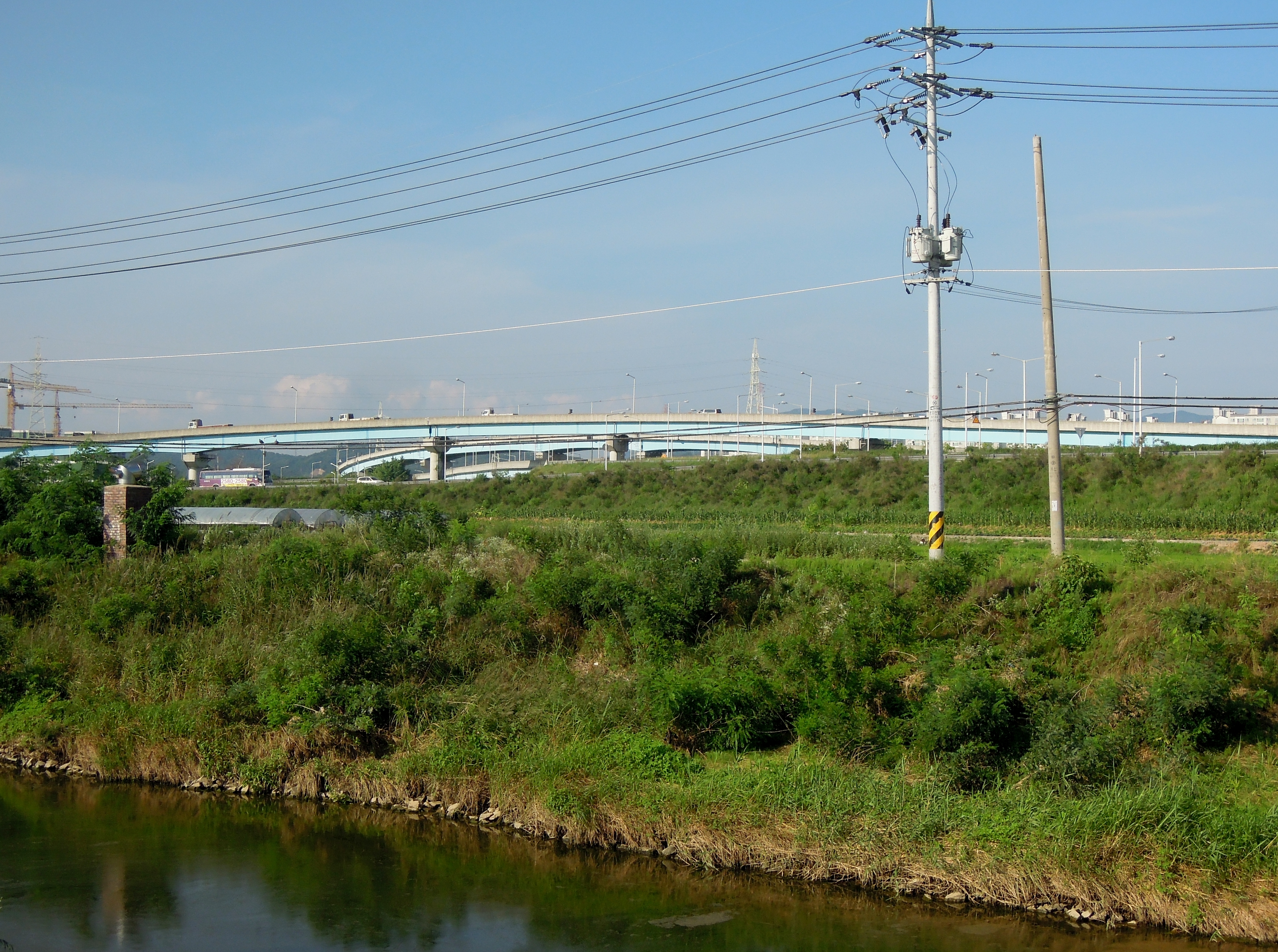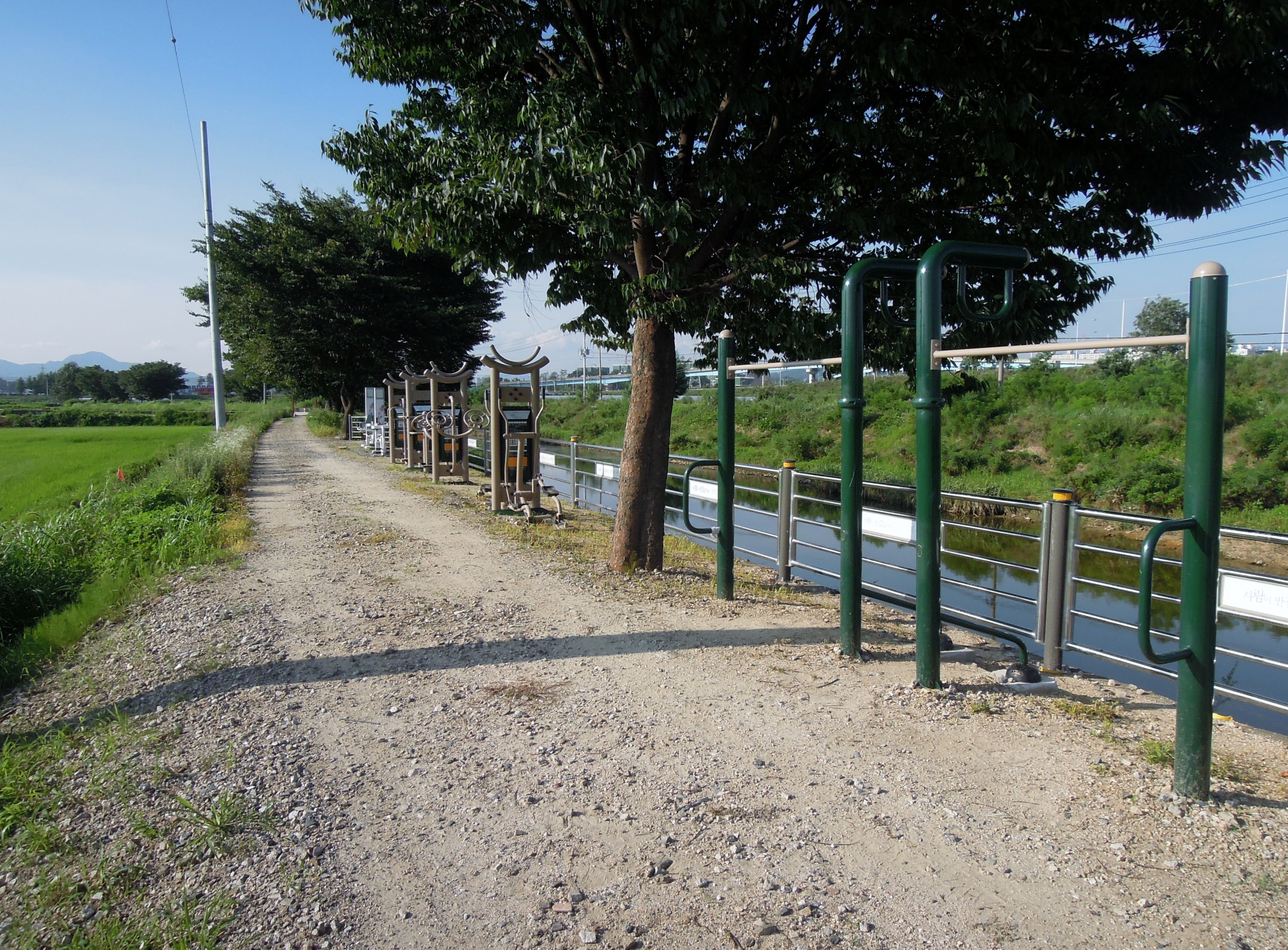Ipbuk-dong on:
[Wikipedia]
[Google]
[Amazon]
Ipbuk-dong is an '' administrative neighbourhood'' in 
Address: 10 Yuljeon-ro, Gwonseon-gu, Suwon, Gyeonggi-do
Address: 6 Dangjin-ro, Gwonseon-gu, Suwon, Gyeonggi-do
Address: 3-24 Suin-ro 598-beon-gil, Gwonseon-gu, Suwon, Gyeonggi-do
 Dangsu-dong houses several older complexes, namely Samjeong Green View (Opened Feb. 1997), Injeong Prince (Nov. 1998), Halla Vivaldi (Jan. 2005; two complexes), and Seosuwon Ssangyong Sweet Dot Home (Sep. 2005). A new housing development between this built-up area and Homaesil to the south is expected to be completed in 2021.
Dangsu-dong houses several older complexes, namely Samjeong Green View (Opened Feb. 1997), Injeong Prince (Nov. 1998), Halla Vivaldi (Jan. 2005; two complexes), and Seosuwon Ssangyong Sweet Dot Home (Sep. 2005). A new housing development between this built-up area and Homaesil to the south is expected to be completed in 2021.


Address: 130 Dangsu-ro, Gwonseon-gu, Suwon, Gyeonggi-do, 16373 There are a number of public footpaths, including those either side of the Hwanggujicheon, and several




Community Centre (in Korean)Dangsu Elementary School (in Korean)Gyeonggi Daemyoung High School (in Korean)Ipbuk Elementary School (in Korean)
{{coord, 37, 17, 36, N, 126, 57, 35, E, display=title, region:KR_type:city_source:GNS-enwiki Neighbourhoods in Suwon
Gwonseon-gu
Gwonseon-gu is the south-western district of the city of Suwon in Gyeonggi-do, South Korea.
Administrative divisions
Gwonseon-gu is divided into the following "''dong''"s.
* Geumgok-dong (Hangul: 금곡동)
* Homaesil-dong (Hangul: 호매실동)
* ...
, Suwon
Suwon (, ) is the capital and largest city of Gyeonggi-do, South Korea's most populous province which surrounds Seoul, the national capital. Suwon lies about south of Seoul. It is traditionally known as "The City of Filial Piety". With a populati ...
, Gyeonggi-do
Gyeonggi-do (, ) is the most populous province in South Korea. Its name, ''Gyeonggi'', means "京 (the capital) and 畿 (the surrounding area)". Thus, ''Gyeonggi-do'' can be translated as "Seoul and the surrounding areas of Seoul". Seoul, the na ...
, South Korea
South Korea, officially the Republic of Korea (ROK), is a country in East Asia, constituting the southern part of the Korea, Korean Peninsula and sharing a Korean Demilitarized Zone, land border with North Korea. Its western border is formed ...
. Ipbuk-dong (입북동/) is divided into two different legal-status neighbourhoods, namely Ipbuk-dong (same name) and Dangsu-dong (당수동/), which are separated by the Hwanggujicheon—a stream which flows south from Wangsong Reservoir on their northern boundary with the city of Uiwang
Uiwang () is a city in Gyeonggi Province, South Korea. It is one of many satellite cities that ring Seoul, making up the Seoul Capital Area. Its largest immediate urban neighbor is Anyang. The low peaks of the Gwangju Mountains (including Moraks ...
, through Suwon, eventually to Asan Bay
Asan Bay is a South Korean bay in the Yellow Sea. Named after the city of Asan immediately to its south, it lies at the mouth of several rivers and separates the provinces of Gyeonggi-do and Chungcheongnam-do
South Chungcheong Province ( ko, ...
. Dangsu-dong has Suwon's sole boundary with Ansan
Ansan (Hangeul: , ) is a city in Gyeonggi Province, South Korea. It lies southwest of Seoul and is part of the Seoul National Capital Area. It is connected to Seoul by rail via Seoul Subway Line 4. It is situated on the Yellow Sea coast and so ...
, and meets Hwaseong further south. The neighbourhood is 96% green belt.

History
Ipbuk-dong's history can be traced to theJoseon Dynasty
Joseon (; ; Middle Korean: 됴ᇢ〯션〮 Dyǒw syéon or 됴ᇢ〯션〯 Dyǒw syěon), officially the Great Joseon (; ), was the last dynastic kingdom of Korea, lasting just over 500 years. It was founded by Yi Seong-gye in July 1392 and re ...
, at which time it was administered as part of Wolgok-myeon, Gwangju-gun (광주군 월곡면). By 1895, "Ipbuk-ri" had been listed as a village, and on 1 April 1914 both Dangsu-ri and Ipbuk-ri were listed as villages in Suwon-gun. However, they by now belonged to different administrative districts, the Hwanggujicheon dividing Wolgokmyeon to the west from Banwol-myeon (반월면) to the east. On 15 August 1949, Wolgok-myeon was incorporated into Banwol-myeon, but under the jurisdiction of Hwaseong-gun (화성군), and on 26 December 1994 they became part of Gwonseon-gu, Suwon-si, namely as Ipbuk-dong and Dangsu-ri. In 2012, the part of Wangsong Reservoir in Ipbuk-dong was transferred to Uiwang City as part of a land exchange.
Geography
Ipbuk-dong lies to the south of Wangsong Reservoir, and is divided into Ipbuk-dong (same name) and Dangsu-dong by the Hwanggujicheon, which is crossed by nine bridges within the dong's limits (four of which, including Dangsu Bridge, form part of Seosuwon Interchange) and a further bridge immediately to the north at the western end of Wangsong Dam. The highest point in the neighbourhood is over 160m above sea level, at the northern end of Chilbosan, where Dangsu-dong meets the city of Ansan to the west. Ipbuk-dong is on the flight path fromSuwon Air Base
Suwon Air Base is a Republic of Korea Air Force (ROKAF) base near Suwon city.
Units
The base is home to the ROKAF's 10th Fighter Wing (제10전투비행단), comprising:
*101st Fighter Squadron flying KF-5E/KF-5F/F-5F
*153rd Fighter Squadron f ...
.
Administration
Ipbuk-dong is administered from the Community Centre at 17 Ipbuk-ro. The head of the dong office (2019) is Lee Wonbok (Hangeul
The Korean alphabet, known as Hangul, . Hangul may also be written as following South Korea's Revised Romanization of Korean, standard Romanization. ( ) in South Korea and Chosŏn'gŭl in North Korea, is the modern official writing system f ...
: 이원복).
Demographics
There are 17435 residents in Ipbuk-dong (2019), 99 (0.6%) of whom hold foreign nationality. A small majority of the Korean population (8746) are male (8590 female). There are 6119 households, with on average 2.9 people. There was a 25% population increase between 2011 and 2014, largely due to the opening of Prugio Apartments.Education
Ipbuk-dong has three public schools:Ipbuk Elementary School
Established in 2004 in Ipbuk-dong proper, Ipbuk Elementary School caters to 616 children, with a further 64 in the kindergarten. The head of the school is Kim Gwangsu (김광수), and there are 57 members of staff in total.Address: 10 Yuljeon-ro, Gwonseon-gu, Suwon, Gyeonggi-do
Dangsu Elementary School (Dangsu-dong)
Situated in Dangsu-dong, Dangsu Elementary School opened on 1 March 1969, and is therefore the oldest school in Ipbuk-dong. It is also the largest, catering to 1083 children, 27 more of whom are in the kindergarten class. The current head of the school is Lee Yonggil, and there are 66 members of staff.Address: 6 Dangjin-ro, Gwonseon-gu, Suwon, Gyeonggi-do
Gyeonggi Daemyeong High School
Established in 2002 to the north of Road 42 in Dangsu-dong, Gyeonggi Daemyeong High School is analternative school
An alternative school is an educational establishment with a curriculum and methods that are nontraditional. Such schools offer a wide range of philosophies and teaching methods; some have strong political, scholarly, or philosophical orientati ...
. The school has 78 male and 21 female students. The current head is Oh Cheolhyeon (오철현), and there are 33 staff on site.
Address: 3-24 Suin-ro 598-beon-gil, Gwonseon-gu, Suwon, Gyeonggi-do
Housing
Though there are many individual houses and smaller units, there are also several large apartment complexes. Ipbuk-dong itself has two major complexes, while Dangsu-dong has a number of older developments. In Ipbuk-dong, Seosuwon Xii Apartments, a 41,978.30m² development with 17 15-storey buildings comprising 921 units, was completed on Feb 26, 2009, while Lakeside Prugio, a 13 30-storey building development of 1366 units at the south-east corner of Wangsong Reservoir, opened in 2014. Other residents are housed in older accommodation, primarily Ungbi Apartments.Transportation
Seosuwon I.C., a major interchange, is in the heart of Ipbuk-dong. Road 42, fromAnsan
Ansan (Hangeul: , ) is a city in Gyeonggi Province, South Korea. It lies southwest of Seoul and is part of the Seoul National Capital Area. It is connected to Seoul by rail via Seoul Subway Line 4. It is situated on the Yellow Sea coast and so ...
to Suwon
Suwon (, ) is the capital and largest city of Gyeonggi-do, South Korea's most populous province which surrounds Seoul, the national capital. Suwon lies about south of Seoul. It is traditionally known as "The City of Filial Piety". With a populati ...
, meets the Gwacheon-Bongdam highway here. The Suwon-Munsan Expressway (17) opened in 2016, with the Geumgok and East Ansan-Dangsu interchanges both partially in Dangsu-dong.
Regarding public transport, Ipbuk-dong is close to Sungkyunkwan University Station on the Seoul Subway
The Seoul Metropolitan Subway is a metropolitan railway system consisting of 23 rapid transit, light metro, commuter rail and people mover lines located in northwest South Korea. The system serves most of the Seoul Metropolitan Area including ...
network, while the Shinbundang Line
The Shinbundang Line (aka ''Sinbundang Line''; ; literally, ''New Bundang Line'') or DX Line for Dynamic Express Line is a long line of the Seoul Metropolitan Subway. It is the world's fifth subway to run completely driverless and the second com ...
is planned to pass to the south of the neighbourhood in 2019.
In line with government policy to increase the number of roundabout
A roundabout is a type of circular intersection or junction in which road traffic is permitted to flow in one direction around a central island, and priority is typically given to traffic already in the junction.''The New Shorter Oxford En ...
s, one was constructed from August to November 2013 to replace the traffic signal
Traffic lights, traffic signals, or stoplights – known also as robots in South Africa are signalling devices positioned at road intersections, pedestrian crossings, and other locations in order to control flows of traffic.
Traffic light ...
s by Ipbuk Primary School, while another was constructed on the Ipbuk-ro/Ipbuk-ro-77beongil junction in 2019.
Recreation and Leisure
Dangsu-dong Citizens' Farm features an agricultural park.Address: 130 Dangsu-ro, Gwonseon-gu, Suwon, Gyeonggi-do, 16373 There are a number of public footpaths, including those either side of the Hwanggujicheon, and several
outdoor gym
The outdoor gym is a gym built outside in a public park, with the all-weather construction of its exercise machines somewhat modeled on playground equipment. It is similar to the 1960s–1970s proliferation of fitness trails, which continue to ...
s.

Agriculture
Being 96% green belt, Ipbuk-dong has a lot of farmland. Most of this takes the form of smallholdings.
See also
*Gwonseon-gu
Gwonseon-gu is the south-western district of the city of Suwon in Gyeonggi-do, South Korea.
Administrative divisions
Gwonseon-gu is divided into the following "''dong''"s.
* Geumgok-dong (Hangul: 금곡동)
* Homaesil-dong (Hangul: 호매실동)
* ...
* Suwon
Suwon (, ) is the capital and largest city of Gyeonggi-do, South Korea's most populous province which surrounds Seoul, the national capital. Suwon lies about south of Seoul. It is traditionally known as "The City of Filial Piety". With a populati ...
References
External links
Community Centre (in Korean)
{{coord, 37, 17, 36, N, 126, 57, 35, E, display=title, region:KR_type:city_source:GNS-enwiki Neighbourhoods in Suwon